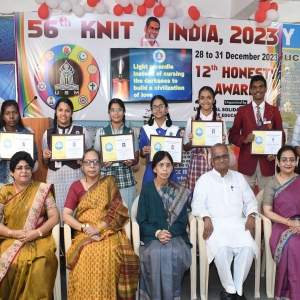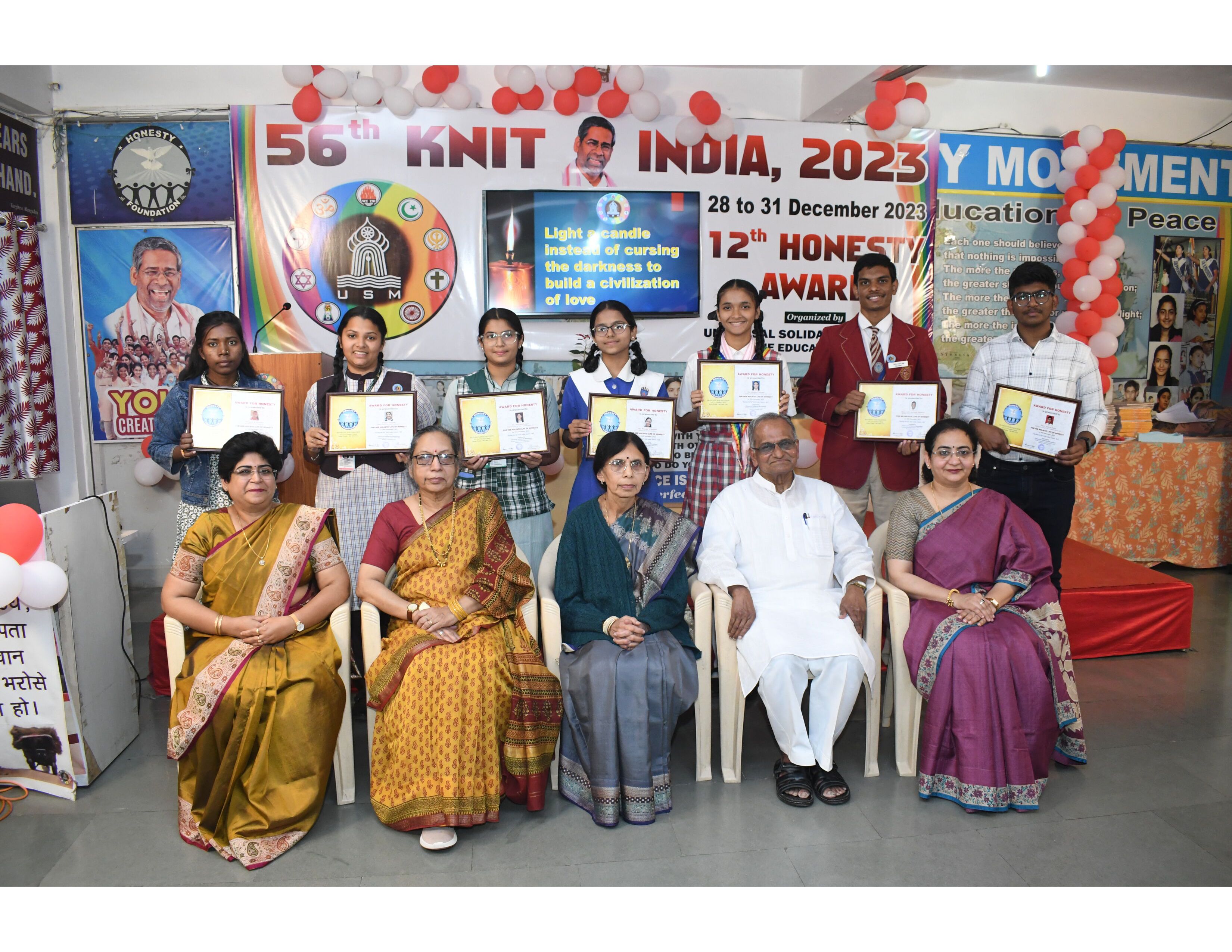
.png) Jacob Peenikaparambil
Jacob Peenikaparambil

Corruption is a cancer that has infected most of the societies and countries in the world. The media often highlights political and bureaucratic corruption. All types of crimes are also the result of moral or ethical corruption. Some countries, especially India, have established agencies to detect corruption, file cases, and prosecute those involved. The Enforcement Directorate (ED) is at the forefront of agencies investigating economic offences and corrupt practices in India.
Unfortunately, there is no let-up in various types of corruption in India despite the promises made by different political parties that rise to power promising to end corruption. The ruling parties commonly connive with their supporters in corrupt practices while aggressively pursuing allegations and cases of corruption they cook up against their opponents. The ruling parties use the anti-corruption agencies to haunt their opponents and even falsely accuse them, while corruption generally thrives. The commoners in India have accepted greasing the palms of bureaucrats and politicians as a standard practice to get their work done.
The ruling party often diverts people's attention from the accusation of corruption against its supporters by raising emotional issues related to religion. Religion is used as opium by politicians and political parties to brainwash people so that they ignore vital issues affecting their lives, including corruption.
Honesty and integrity are the core values taught by all religions. No religion teaches us to lie and cheat others. Unfortunately, when religion is used for political mobilisation and spreading hatred against other communities, those involved do not hesitate to resort to blatant lies and deceit. In that case, social media becomes an easy tool in their hands to manufacture and market lies.
There are also legalised forms of corruption. Luminaries believe that Electoral Bonds in India are a legalised form of corruption. Electoral bonds are interest-free bearer bonds or money instruments that companies and individuals can purchase from authorised branches of the State Bank of India (SBI). These bonds are sold in multiples of Rs 1,000, Rs 10,000, Rs 1 lakh, Rs 10 lakh, and Rs 1 crore. Anyone can purchase them through a KYC-compliant account to make donations to a political party. The political parties have to encash them within a stipulated time. The instrument does not carry the name and other information of the donor, and thus, electoral bonds are anonymous. The political parties which receive huge funds through Electoral Bonds are not obliged to reveal the names and details of the individuals or companies that contribute to them; they are considered a legalised form of corruption.
Punitive measures alone cannot fight corruption. Saying that there is no need for anti-corruption laws and agencies to investigate allegations of corruption is tantamount to imprudence. Along with measures to identify corrupt practices and punish those who indulge in corruption, it is essential to adopt preventive measures. Inculcation of human ethical values in people, especially children, is the best way to prevent corruption.
People who visit Germany observe no practice of checking tickets on buses and trains. At the same time, hardly anyone travels without a valid ticket. People are honest and law-abiding. In other words, honesty has become a part of the culture of the German people.
Creative and innovative ways are to be devised to promote the practice of honesty. Twelve years ago, Bernard De Sousa, an industrialist from Goa, considered doing something unusual to fight corruption. "Why not do something to promote honesty instead of lamenting over the spread of corruption?" asked Bernardo D'Souza. The answer was the birth of the Honesty Foundation on 30 December 2012 to promote honesty. With his wife Domino and children, he decided to give back some of his hard-earned resources to society for promoting honesty and encouraging honest people through awards through the Honesty Foundation.
The Honesty Foundation entrusted USM (Universal Solidarity Movement), Indore, to identify awardees from among students and organise the Honesty Award every year. USM has been fulfilling this task faithfully for the last 11 years. USM has been organising the Honesty Award function as part of the USM Knit India programme, in which students, teachers, and principals from different parts of India participate to strengthen unity in diversity.
The Honesty Award 2023 was organised on 30 December 2023. Seven students from six schools were honoured with Honesty Awards for honestly practising the values they imbibed during the USM leadership training. Dr Renu Jain, the Vice-Chancellor of Devi Ahilya Vishwa Vidyalaya Indore, gave away the awards. About a hundred people, including some prominent citizens of Indore city, participated in the function.
Encouraging people to practice ethical and human values honestly is the best way to prevent corruption. Honesty Foundation, Goa and USM have honoured 83 young people with honesty awards from 2012 to 2023.
The criteria for selecting students for the Honesty Award are the following.
1) They should be members of the USM Peace Club and should have participated either in the Enlightened Leadership training or one Knit India programme.
2) They should be honestly practising the Five Paths of personal transformation.
3) They should be practising the specific core values they have imbibed from the USM leadership training.
A speciality of the Honesty Award function 2023 was the participation of most of the awardees' parents. Parents appreciated the changes that have taken place in their children as a result of being part of the USM, especially the impact of one-week leadership training.
Politicians and bureaucrats, often accused of corruption, come from the society. If they are corrupt, the society, especially families and communities to which they belong, are equally responsible because they have failed to inculcate the value of honesty in their members. Unless society doesn't change, corruption cannot be reduced, irrespective of the number of laws put in place and the anti-corruption agencies' aggressive stance. For example, enacting more stringent regulations has not decreased crimes against women. According to National Crime Records Bureau (NCRB) data, the country witnessed an almost 4% rise in crimes against women in India in 2022.
Inculcating ethical and human values, especially honesty and integrity, in students through various incentives as an integral part of education, parents and family members becoming role models of honesty and integrity and religions focusing on the practice of the core values according to their respective teachings, and putting an end to commercialisation and politicisation of religion are needed.